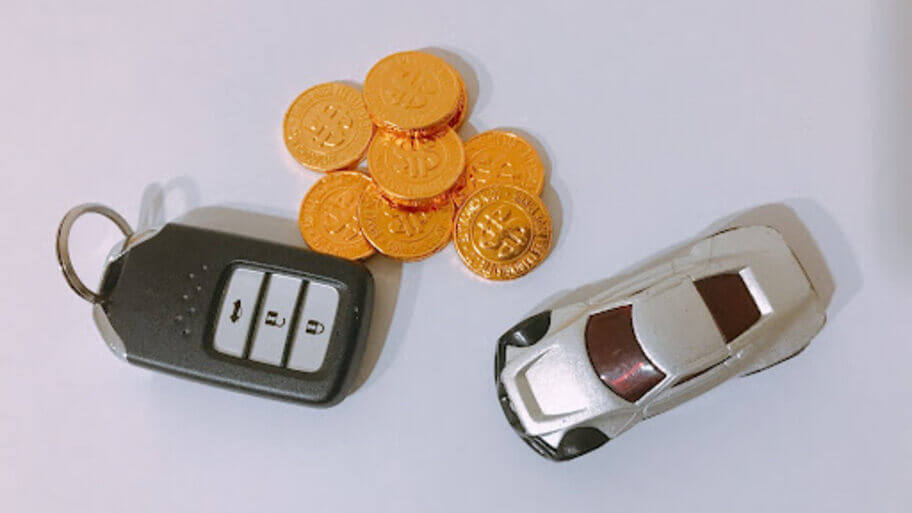Visiting a dealership with a preapproval is an essential step towards getting car loans faster. Preapproval involves assessing your financial strength and ability to clear a loan depending on your credit history and current financial position.
The preapproval contains details such as the amount you can afford to borrow, the interest rate, and the loan term. It makes the buying process flawless by making it easy to approximate the total cost of car loans. When creating your budget, you’re able to make an informed decision before deciding if car loans are right for you.
Let’s take a closer look at why you need preapproval, how it works, and how to get preapproved for car loans.
How Does Preapproval Work?
With the proper documentation and good credit, the preapproval process is simple. The first step is contacting a lender such as a bank, credit union, or online lender.
You’ll need to present proof of identity, such as your Social security number or driver’s license, and documentation to show your household income and expenditures.
This information helps the lender conduct a credit check that determines how much they will offer you and the interest rate.
Why Should You Get Preapproved?
Getting preapproved is beneficial in many ways. It helps you to:
-
-
-
Set a Realistic Budget
-
-
Preapproval estimates how much you can afford, which helps you be more realistic about your budget and available car choices.
With the help of an auto loan calculator, use the loan term and interest rate to determine your monthly payments, the down payment, and your trade-in value.
For example, a 723 credit score car loan has an average rate of 3.84%. Add 10% sales tax, extra fees, and additional costs such as insurance. This figure will help put the monthly contributions into perspective.
-
-
-
Strengthen your Negotiating Position
-
-
A preapproval puts you in a better negotiating position with the dealership. The buying process includes acquiring financing, so if you already have the preapproval, the process is much easier and faster.
Getting preapproved also gives you the flexibility of choosing from various dealerships—for instance, auto loan interest rates with a 790 credit score range between 2% -4%. Since the dealer is aware that you have options, they are more likely to offer better terms and services.
You also don’t have to take any offers from the dealership that will be more expensive in the long run.
-
-
-
Get Protection from Dealer Markups
-
-
Walking into a dealership without a preapproval makes you prone to accepting dealer financing. Most of these deals always have a catch, which makes you spend more than your budget.
For instance, some dealerships will offer you 0% or low-interest rates if you buy other add-on products, such as an extended warranty. If you’d like any add-ons, it’s better to get financing from a credit union or bank.
Dealers also tend to mark up the interest rates, which increases the car’s total cost. For instance, a 698 credit score car loan comes with interest rates between 8% and 12%. If you’re not aware, the dealer is more likely to offer you the higher side.
Getting preapproval helps you choose the most suitable interest rate, so you’ll have something to compare the dealer’s offer to.
Get an Even Better Rate and Avoid Upsells
Presenting a preapproval is a great way to avoid purchasing add-ons. It helps you stay within the budget since you can only get the amount you have preapproval for.
A preapproval also prompts the dealer to offer you the best rate possible. They often have connections with lenders who specialize in auto financing. Such lenders can provide better rates compared to regular banks. If you have a preapproval, the dealer will have no choice but to offer even better rates.
How to Get Preapproved for Car Loans
-
-
-
Check your Credit
-
-
High scores guarantee you better rates and terms compared to lower scores. For example, getting car loans with a credit score of 540 will mean interest rates of about 14.80%, which translates to higher monthly payments and total interest.
Before approving car loan, lenders have to review your credit report and score. Based on your financial health, they’ll determine how much they are willing to lend you and the interest rate.
Ensure you review your credit report beforehand, so you know what to expect. In case the information is inaccurate, you’ll have time to dispute the report.
-
-
-
Collect the Required Documentation
-
-
Lenders require detailed information during the preapproval process. Some documents you’ll need include:
-
-
-
- Employment status and information
- Proof of identity such as a driver’s license or a state ID
- Social Security number
- Household income details
- Any outstanding debts such as a mortgage or student loans
- Tax documentation
-
-
You may have to provide additional information, such as your down payment amount and your trade-in value.
-
-
-
Compare Several Offers
-
-
Lenders offer different loan features, such as the length of the loan term and interest rates. Instead of settling for the first lender you come across, ensure you get preapprovals from different lenders.
You can start by comparing deals from credit unions such as the RBFCU preapproval car loan with other offers from various online lenders and banks. It’s the only way you’ll be sure you’re getting the best deal possible, depending on your budget and financial capabilities.
Since preapprovals remain valid for 30 to 60 days, you have time to look around. When you identify the car you’d like, choose a suitable offer and proceed with the process.
Should You Get Prequalified Instead of Preapproved?
To get pre-qualification from a lender, you’ll need to provide basic information about your income and credit score. The lender uses this information to come up with an initial offer.
The pre-qualification may appear on your credit report, but it will not affect your credit score since it’s a soft inquiry.
The preapproval process is slightly different. Unlike pre-qualification, the lender has to verify the information you provide. They evaluate your credit report and check your credit score via a major credit bureau such as Equifax. Since it’s a hard inquiry, your credit score will drop slightly.
If you don’t know your credit score and the loan options available for you, pre-qualification is the best move. Keep in mind that the information you share is not verified, and therefore, the loan terms may be different from the actual offer.
Since preapproval affects your credit score, you should only apply if you know your score and you’re ready to buy or refinance your loan.
Featured Image: Twenty20








